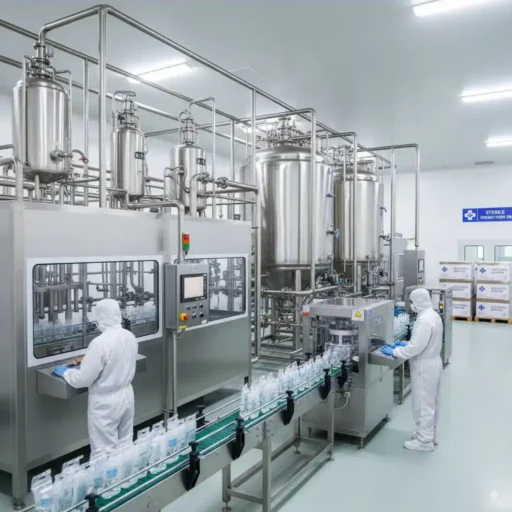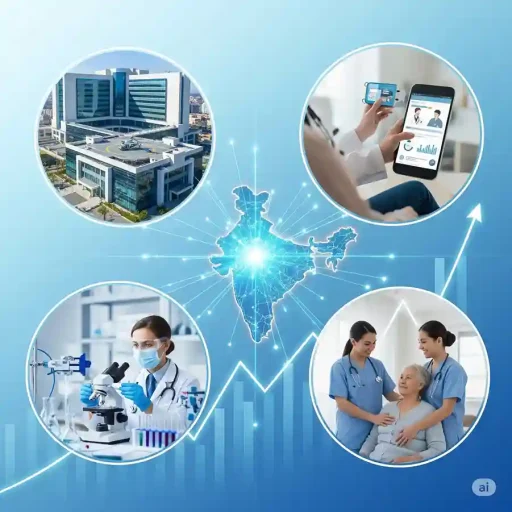The transformation taking place in today’s pharmaceutical industry is one of the most drastic changes due to new pharmaceutical manufacturing technologies. These may enhance the efficiency and quality of production, but they also offer the possibility of more complex and personalized medicines. The demand for manufacturing drugs faster, safer and more cost-efficiently has given birth to the innovations found in this article on the best innovations in pharmaceutical manufacturing technologies having a future impact on the industry.
Related Books: Business books on several industries
The Rise of Automation in Pharmaceutical Manufacturing
The major technological development in pharmaceutical manufacturing technologies is the increased adoption of automation in manufacturing processes. This was a hallmark change in the organization which streamlined the processes, made the human error rate minimal, and increased efficiencies. Several stages of drug manufacturing involve using robots and automated systems-from material handling to packaging.This implies faster production cycles and, thus, consistency in the quality of products and low-wages.
With increased pharmaceuticals manufacturing technologies , such as artificial intelligence and machine learning integrated into automation systems, these capabilities can be further enhanced. For instance, AI algorithms can predict potential problems on the line of production, while ML models optimize production schedules, resulting in high cost savings while improving overall efficiency.
Related Business Plans: Business plans on different manufacturing Industries
Advanced Drug Delivery Systems
With that said, another innovative ingredient in pharmaceutical manufacturing technologies is the advancement in advanced drug delivery systems. Such systems are designed for better bioavailability and effectiveness of drugs, allowing the patient to receive the right dose at the right time. Ideas like nanotechnology, transdermal patches, and sustained-release formulations are gaining wider acceptance within the industry.
For instance, through nanotechnology, it is possible to develop nanoparticles that deliver drugs directly to the site of action in the body. Such precision to deliver medication reduces side effects and enhances therapeutic effectiveness. These advances in pharmaceutical manufacturing technologies are making possible the manufacturing of more personalized therapies, especially for complicated diseases such as cancer and diabetes .
Related article: Starting Own Insulin Syringe Production Venture
Continuous Manufacturing Technology
Indeed, production activities of a pharmaceutical company have historically been in batches rather than a continuum whereby medicines are manufactured at bulk and treated differently in augmented units for sales. However, pharmaceutical manufacturing technologies are gradually moving toward continuous manufacturing, which allows continuous manufacture of drugs without large tanks for storage or long production cycles.
Continuous manufacturing has many advantages such as less manufacturing time, as well as lower operating expenses, and the possibility of producing small quantities of drugs with more flexibility. This has been a significant innovation for the manufacture of biologics and other complex drugs, which often entail the need for very high precision and consistency. The important feature expected increasingly from continuous manufacturing will be its catalytic role in improving efficiencies in the pharmaceutical industry as it becomes much more widespread.
3D Printing in Pharmaceutical Manufacturing
3D printing is an emerging technology in pharmaceutical manufacturing technologies that creates ripples in the industry. The concept of 3D printing enables the production of personalized medicines, including dosage, shape, and release profile. It is able to construct 3D pills according to individual patient demands, thus resulting in more accurate, effective treatment.
In fact, this technology has a limitless work scope, ranging from the development of sophisticated drug delivery systems to prototypes for clinical trials. This method opens up new avenues in pharmaceutical manufacturing but breathes great change in manufacturing and administration indeed to that avail..
Also Visit: Market Research Reports
The Role of Biotechnology in Pharmaceutical Manufacturing
Biotechnology is increasingly becoming instrumental to the advances in drug manufacturing technology. The use of living organisms, cells, and enzymes for drug production made it possible to develop biologics like monoclonal antibodies and gene therapies. Today’s innovations are creating entirely new trends in the treating of diseases considered absolutely incurable before.
They also promote biotechnological innovations for the pharmaceutical manufacturing technologies to make them greener and more sustainable production. To illustrate, bioreactors are very quickly gaining ground with respect to producing biologics in large amounts, thereby reducing the footprint of making such drugs on the environment.
For any Business related Query: Visit NPCS
Smart Packaging Solutions
Smart packaging is the modern touch in pharmaceutical manufacturing technologies towards ensuring drug safety and patient compliance. The type of packaging that will come equipped with sensors, RFID tags, and other advanced technologies will be developed to gauge those particular conditions under which the medicines have stored in transport and storage and yet to guarantee that specific medicines are kept in temperature and humidity ranges as much as, they begin to degrade and lose potency.
Moreover, smart packaging monitors patient compliance with medication regimens. Packaging may remind patients about taking their medication, or it may notify healthcare providers if this occurs. This will better the outcome in patients’ safety while not increasing the chances of making a medication error.
For Business related Videos: Visit Entrepreneur India
Conclusion
Pharmaceutical manufacturing technologies are all about innovation. From automation to continuous manufacturing and advanced drug delivery systems to 3D printing, they transform the entire process of manufacturing medicines into much more efficient, better-quality, and more accessible treatment. These innovations, when adopted in the current evolving industry, will then demand personalized, effective, and economical treatments from the industry.
These ongoing improvements in pharmaceutical manufacturing technologies will certainly give birth to more spectacular advances that promise to revolutionize drug manufacturing. Medicine has the promise of becoming a future where medicines will be even more accessible, effective, and individualized geared to the needs of each patient-an excellent promise toward better health outcomes worldwide.






